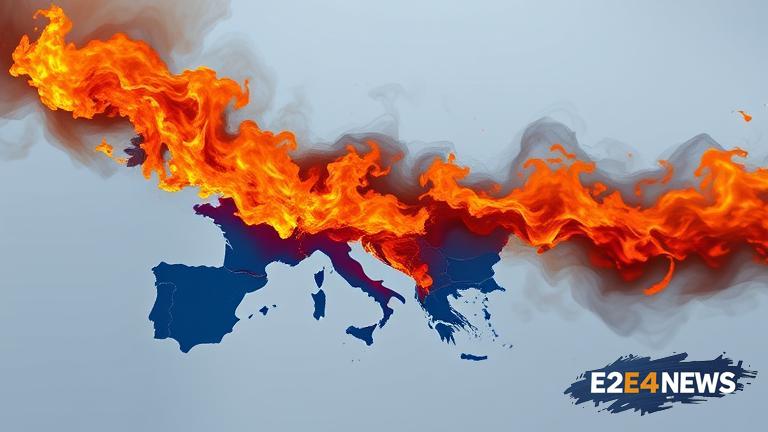Greece has made significant strides in its firefighting efforts, with the latest data from Eurostat revealing that the country ranks second in the European Union in terms of the number of firefighters per capita. This impressive achievement is a testament to Greece’s commitment to protecting its citizens and the environment from the devastating effects of wildfires. The data shows that Greece has more than double the European average of firefighters, with a total of 13,514 firefighters serving the country. This is a significant increase from previous years, demonstrating the government’s dedication to enhancing its firefighting capabilities. The Greek government has invested heavily in modernizing its firefighting equipment and training its personnel to tackle the increasingly complex and dangerous wildfires that have become a regular occurrence in the region. The country’s firefighting forces have been bolstered by the addition of new aircraft, vehicles, and equipment, allowing them to respond more effectively to emergencies. Furthermore, the government has implemented a range of measures to prevent wildfires, including public awareness campaigns and strict regulations on land use. The efforts of the Greek firefighting forces have not gone unnoticed, with the country receiving international recognition for its exemplary response to wildfires. The European Union has praised Greece’s commitment to firefighting, highlighting the country’s progress in reducing the number of wildfires and minimizing their impact. The Greek government has also been working closely with other EU member states to share best practices and coordinate efforts to combat wildfires. This cooperation has led to the development of new strategies and technologies, which are being used to enhance firefighting capabilities across the region. In addition to its impressive firefighting efforts, Greece has also made significant progress in protecting its natural environment. The country has implemented a range of measures to preserve its forests and wildlife, including the creation of protected areas and the reintroduction of native species. The Greek government has also been working to promote sustainable land use practices, such as reforestation and agroforestry, which help to reduce the risk of wildfires. Moreover, the country has been investing in renewable energy sources, such as solar and wind power, to reduce its reliance on fossil fuels and minimize its carbon footprint. The combination of these efforts has made Greece a leader in environmental protection and a model for other countries to follow. The country’s commitment to firefighting and environmental protection has also had a positive impact on its economy, with the tourism industry benefiting from the preservation of Greece’s natural beauty. The Greek government has also been working to promote eco-tourism, which encourages visitors to respect and protect the environment while enjoying the country’s natural wonders. Overall, Greece’s impressive firefighting efforts and commitment to environmental protection make it a shining example of a country that is taking proactive steps to protect its citizens and the environment. The country’s progress in these areas is a testament to the effectiveness of its policies and the dedication of its people. As the world continues to grapple with the challenges of climate change and environmental degradation, Greece’s example serves as a beacon of hope and a reminder that collective action can lead to significant positive change. The country’s achievements in firefighting and environmental protection are a source of pride for its citizens and a inspiration to other nations. Greece’s leadership in these areas is expected to continue, with the government committed to building on its progress and exploring new ways to enhance its firefighting capabilities and protect the environment.
